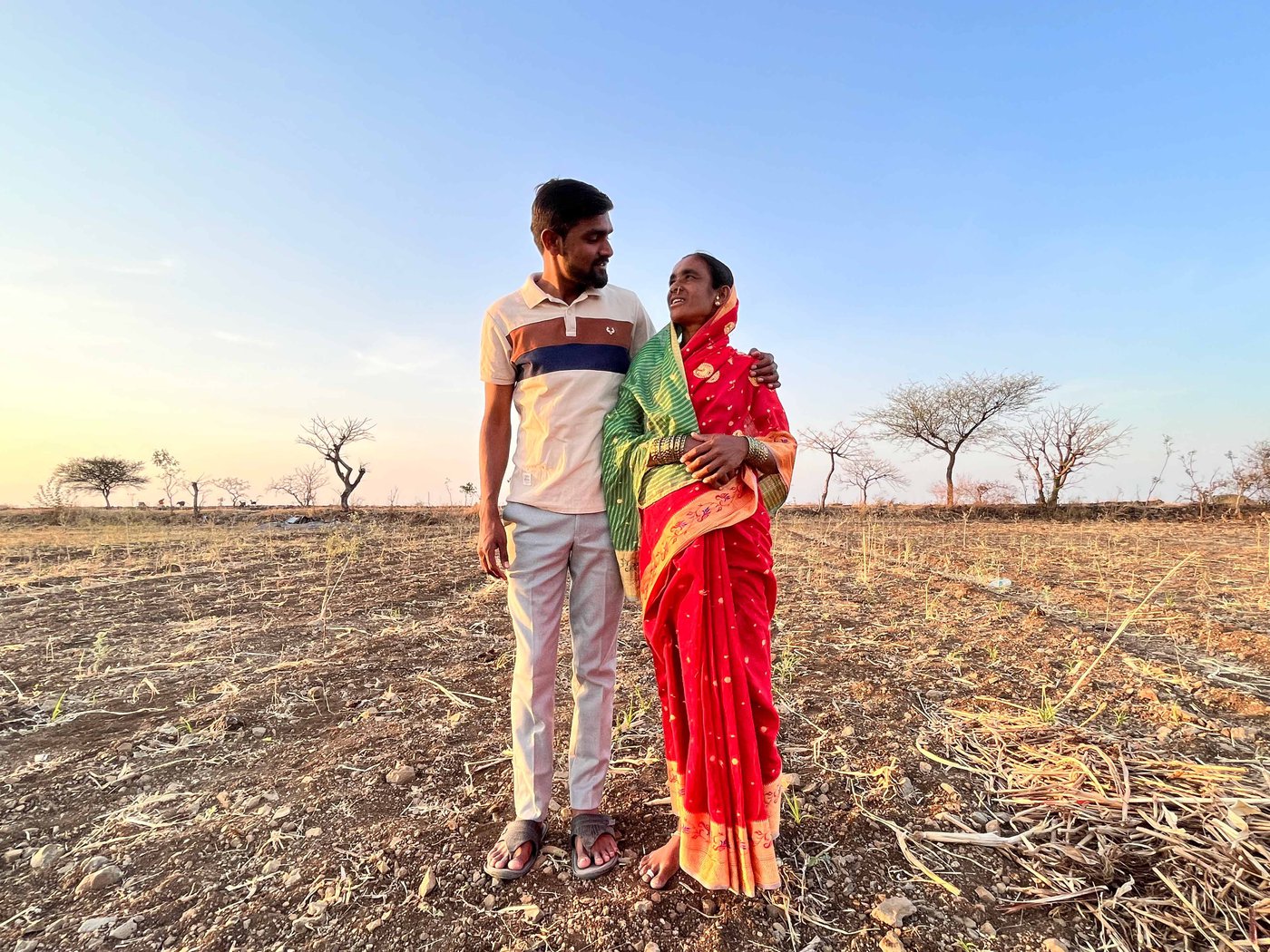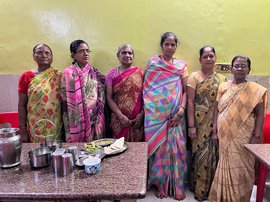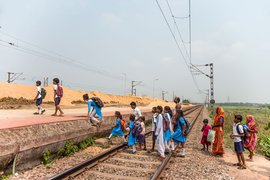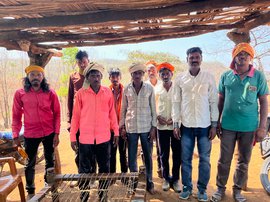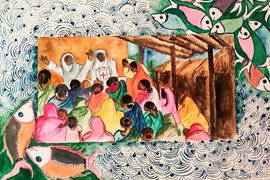Hours after he knew he had cleared the entrance exams for the Maharashtra Public Services Commission (MPSC), Santosh Khade requested a friend to drive him from Beed to Solapur, about 180 kilometres away. On reaching the lush sugarcane fields he looked for the khop – a makeshift home of bamboo, straw and a tarpaulin sheet. In minutes, the 25-year-old tore down the home where his parents had lived for more than 30 years as harvest labourers during the six-month sugarcane season.
“The joy of ensuring that my mother and father will never again work as sugarcane harvest labourers was much greater than my joy later at finding out that I had topped the NT-D (a sub-category among nomadic tribes),” Khade said, seated on a plastic chair in the wide verandah of his home abutting the family’s 3-acre rainfed farm.
Tears and peals of laughter had earlier greeted his news. Khade is the son of labourers who annually migrated from drought-prone Patoda to Solapur district for more than three decades. He said, 90 per cent of families like his from Sawargaon Ghat migrate to cane-growing areas in western Maharashtra and Karnataka for the annual harvest.
A member of the Vanjari community, Khade cleared the 2021 MPSC exams with an impressive performance – he ranked 16th statewide in the general list and topped the NT-D category.
“It was the outcome of my parents’ years and years of my struggle. Jo janwar ka jeena hota hai, wohi inka jeena hota hai [Their life is similar to that of animals],” he said, describing cane workers’ lives during the harvest season. “My first target was to stop that, to find a good enough job that they would no longer have to migrate for the cane harvest.”
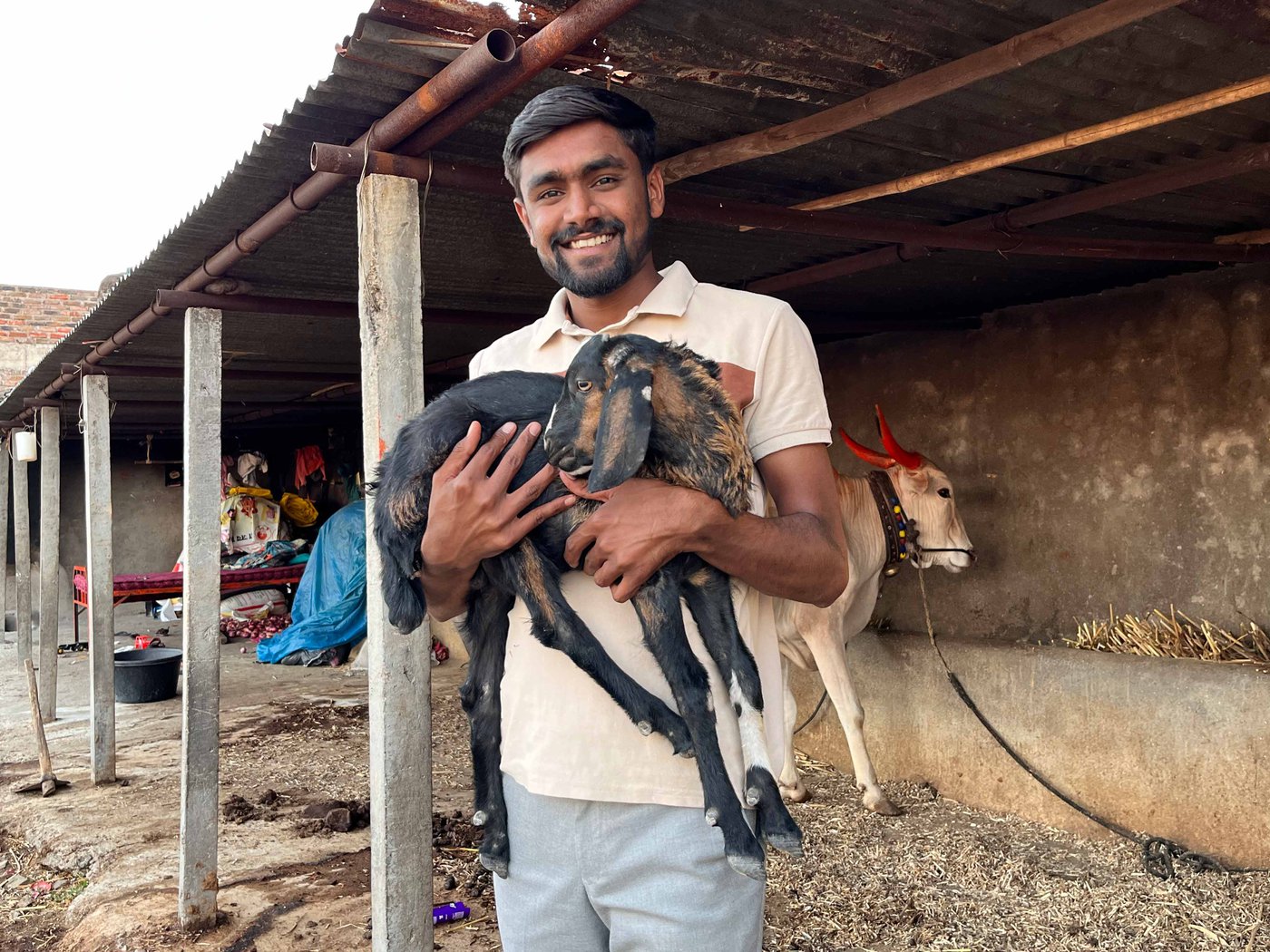
Khade’s family’s animals live in an open shelter right next to the house
A Niti Aayog report in 2020 said that the Indian sugar industry’s annual output is worth approximately Rs 80,000 crore, with more than 700 installed cane crushing factories nationwide.
Keeping these factories flush in Maharashtra alone are about 8 lakh cane harvest labourers. The large majority belong to the Marathwada region, particularly Beed district. Workers are traditionally paid a lump-sum advance, known as an uchal (literally translating to ‘a lifting’). It is in the range of Rs. 60,000-Rs. 1,00,000 and is usually paid to a couple for the entire season that may last six to seven months.
Working and living conditions are abysmal: Saraswati, Khade’s mother, said they would often wake up at 3 a.m. to ensure that the factory had freshly harvested cane; they regularly ate stale food, never had access to toilets and for years had to trudge long distances to fetch water. In 2022, Saraswati fractured her leg when she fell off their bullock cart after a sand-tipper truck hit it.
Khade spent many holidays with his parents helping to bundle cane stalks, or the wada (foliage) that they could then sell as fodder or tending to the bullocks.
“Many boys’ dream is to be a Class 1 officer, to have a plush office, a good salary, a good chair, a car with a lal-diva (beacon),” said Khade. “I didn’t have those dreams. My dream was limited: to give my parents the life of humans.”
In 2019, the Maharashtra government established the Gopinath Munde Sugarcane Cutting Workers’ Corporation. For the financial year 2023-24, the government has proposed to allocate Rs. 85 crore for welfare activities to be undertaken by the corporation. The workers, however, continue to labour in adverse conditions.
*****
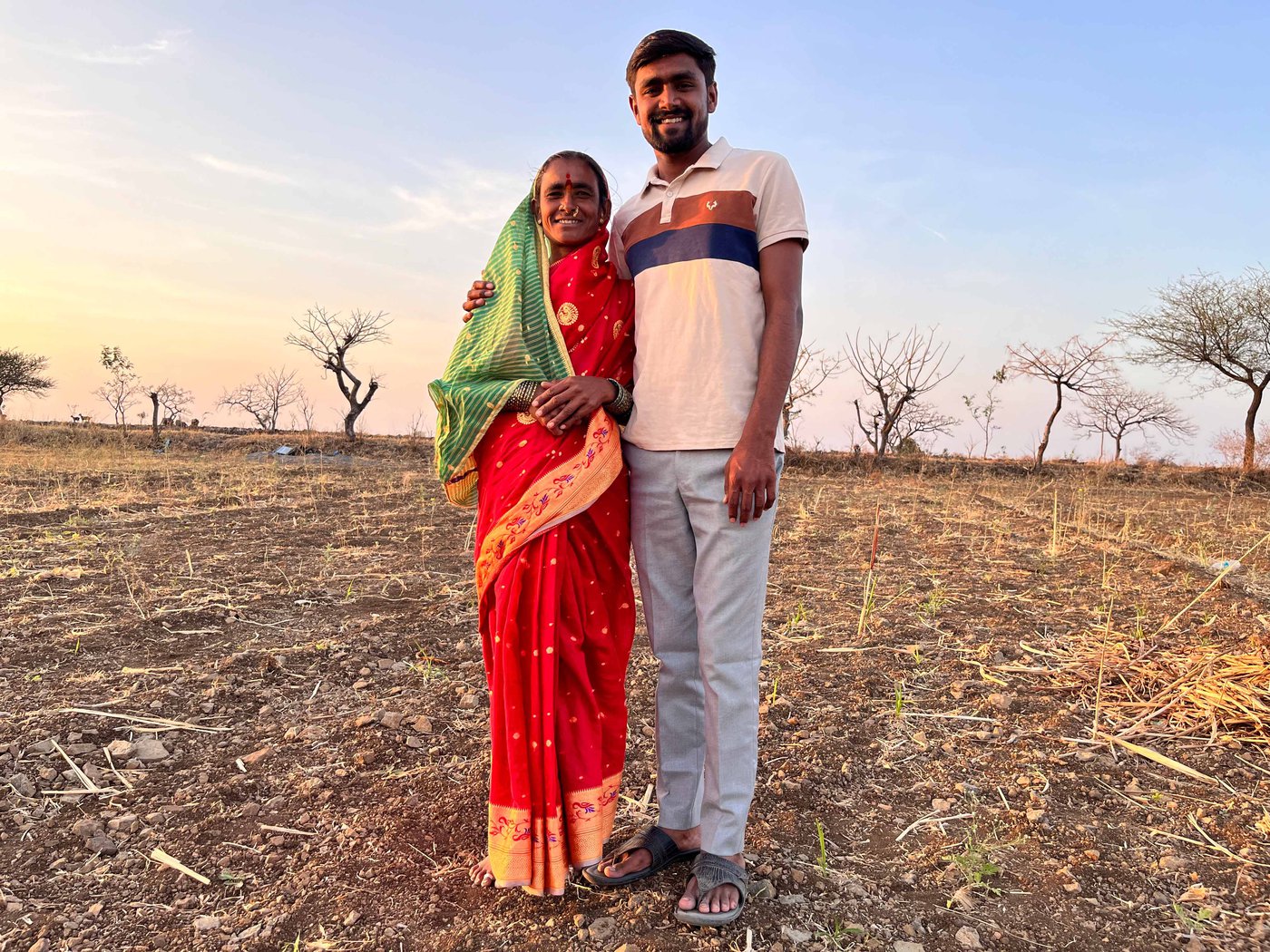
Santosh Khade and his mother, Saraswati, in the small farmland adjoining their home
In primary school, Khade, his two sisters and cousins lived for six months a year in the care of his paternal grandmother. They would return from school, work on the farm and study in the evenings.
In Class 5, his parents, keen that their boy break free of generations of hard labour, admitted him to an ashram shala (a free residential school run by the state government for, among others, nomadic tribes) in Ahmednagar.
“We were poor, but my parents raised me with a little pampering. So, when I couldn’t adjust to living alone there in Ahmednagar, I was moved to a hostel in Patoda town, for Classes 6 and 7.”
Now closer home, Khade began to spend weekends and holidays doing small jobs, in restaurants or selling small quantities of cotton. The daily wages he earned were spent on things his parents struggled to afford – bags, books, geometry instruments and more.
By Class 10, he knew he wanted to take the competitive exams for a state public services commission job.
“Actually, any other professional educational course would have been unaffordable – my parents earned Rs. 70,000-Rs. 80,000 when they migrated for six months, and any course I might sign up for would have cost us between 1 to 1.5 lakh [rupees],” Khade said. “The choice to sit for the MPSC exams was also an economic one. You don’t need to pay any fees, nor take any special course to sit for the exam, nor pay a bribe, nor get anybody’s recommendation. It was the most feasible career choice. Phakt and phakt aplya mehnaticha jorawar apan pass hou shakto [One could succeed on the basis of hard work alone.]”
For his undergraduate degree, he shifted to Beed city and decided to simultaneously prepare for the MPSC exams. “I felt I didn’t have time, I wanted to clear the MPSC exams in the same year as my graduation,” he said.
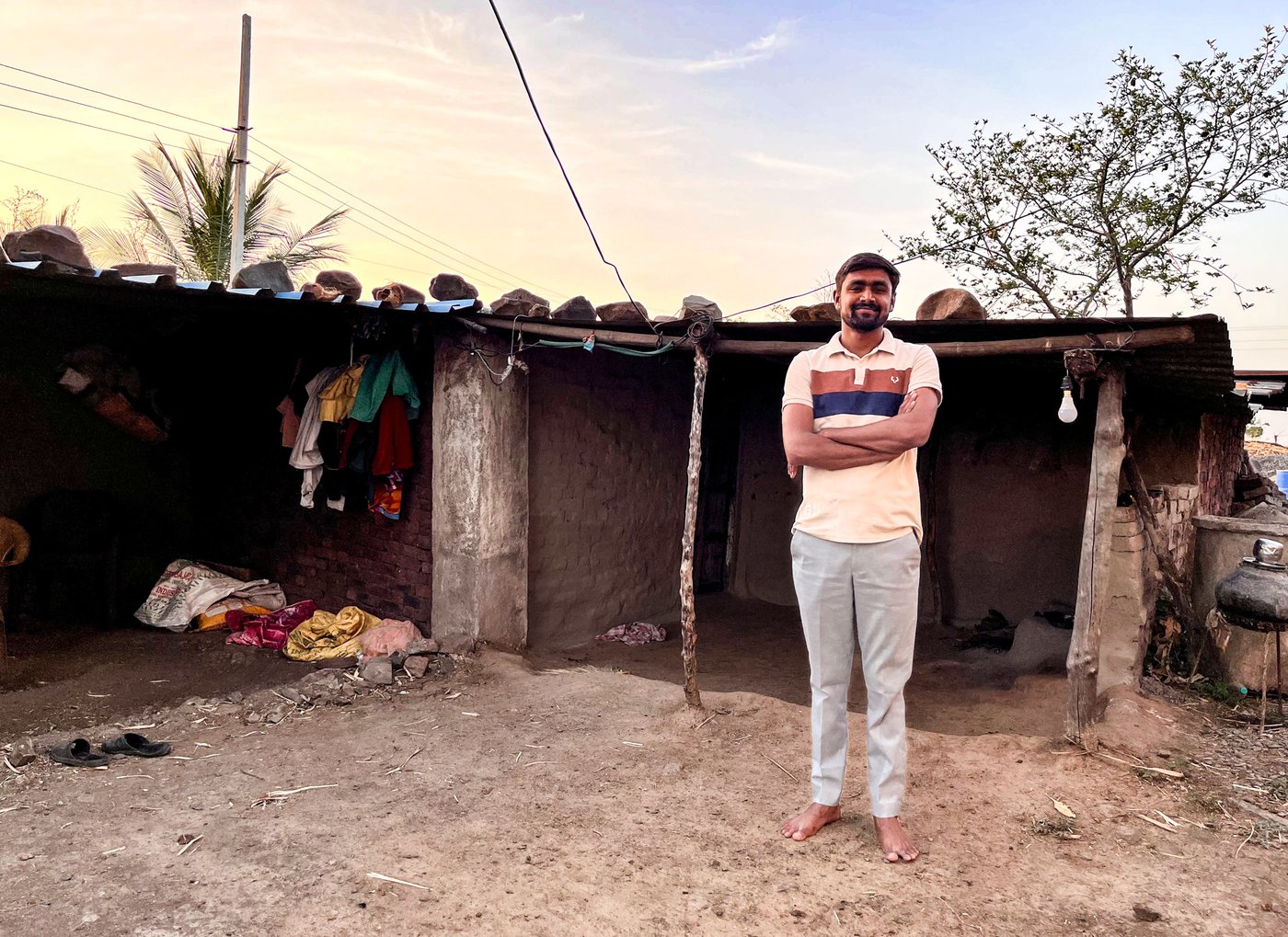
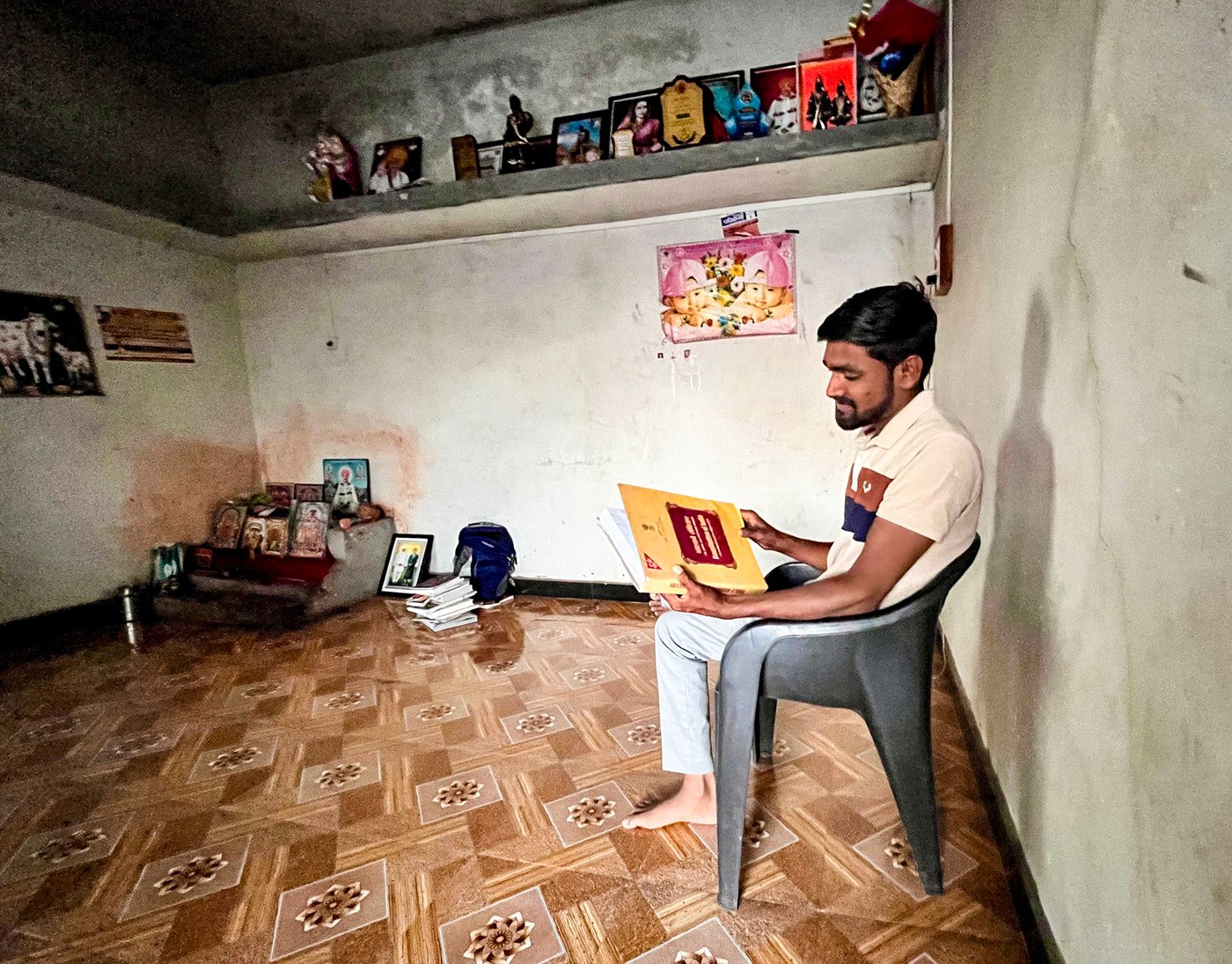
Left: Behind the pucca home where Khade now lives with his parents and cousins is the brick structure where his family lived for most of his childhood.
Right: Santosh Khade in the room of his home where he spent most of the lockdown period preparing for the MPSC entrance exam
The family had lived until then in a low-slung mud home with a tin roof, a structure that continues to stand behind their new house in Sawargaon Ghat. As Khade attended college, the family drew up plans to construct their pucca home. He felt an intense urgency to complete his education and find a job, he said.
On completing his graduation in 2019, he began to spend his days in libraries, mostly in Pune where he lived in a hostel with other students preparing for competitive exams. He came to be known as the youngster who avoided friends, outings and tea-breaks.
“ Apun idhar timepass karne nahin aaye hain [We had not gone there to while away our time],” he said.
He would leave his cellphone in the room before heading out to the library in Kasba Peth, an old residential neighbourhood of Pune. There he would study till 1 a.m., reading and solving previous years’ question papers, researching the interview segment, trying to break into the mind-set of question paper setters and interviewers.
On an average day, he would solve 500-600 MCQ (multiple choice questions) problems.
The first written exam, scheduled for April 5, 2020, was indefinitely delayed by the Covid-19 pandemic. “I decided to take advantage of the time.” So back in Sawargaon Ghat, he converted one room of their now almost complete pucca home into a study room for himself. “Even if I stepped out it was to the raan (fields) where I would sit under the mango tree and study, or to the roof to study in the cool evenings.”
He finally took the MPSC preliminary exam in January 2021, scoring 33 marks above the cutoff required to move to the next level. The ‘mains’ or the main examination, however, was delayed too, this time by the second wave of the pandemic.
Khade suffered a personal setback too. “My 32-year-old cousin died of Covid. He died in hospital, in front of me. We conducted the last rites on our farmland,” he recollected.
During the 15-day isolation afterwards, a despondent Khade began to feel it was his responsibility, as the only educated youngster, to stay back home. The pandemic had destroyed livelihoods and hurt incomes. He toyed with the idea of quitting his MPSC journey.
“Eventually, the thought that prevailed was that if I quit now, everybody in my village who is dependent on the cane harvest would also lose hope of ever achieving anything better,” he said.
*****
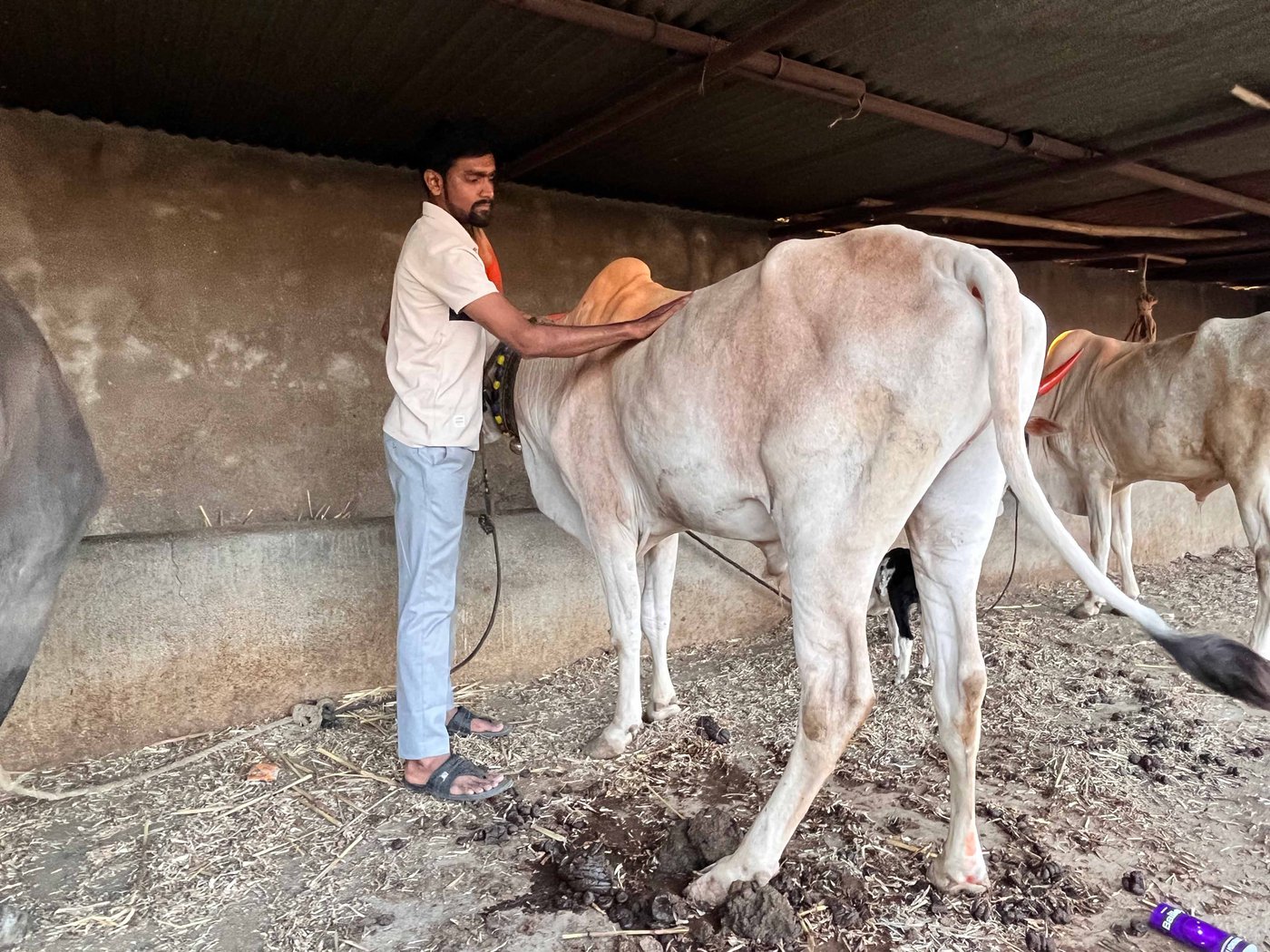
Santosh Khade with one of the family’s four bullocks. As a boy, Khade learnt to tend to the animals while his parents worked
At the main exam in December 2021, Khade qualified for the interview round and was quick to promise his parents that they would not have to go back to cut cane in 2022.
But flustered and diffident, he bungled his first interview. “I would say ‘sorry’ even if I knew the answers.” He missed the cutoff by 0.75 marks, and the 2022 main exam was less than 10 days away. “ Main sunn ho gaya [I was numb]. My parents were away at the cane harvest. I called bappu [father] in dejection and said I wouldn’t be able to keep my promise to them.”
Khade is emotional as he describes what happened next. He expected his father, disabled by polio, illiterate and with no knowledge about the MPSC exam process or its competitive nature, to scold him.
“Instead, he told me, ‘ Bhavdya [a nickname his parents use], for you I can cut cane for another five years.’ He told me I cannot stop trying, that I had to become a government officer. I needed no other motivational speech after that.”
In Pune, Khade switched off his phone and returned to the library. At his next attempt, his score went from 417 to 461 out of 700. He now needed only 30-40 marks out of 100 in the interview round.
As the interview scheduled for August 2022 kept getting delayed, his parents decided to accept another year’s uchal . “I swore to myself that day that when I see them next, it would be with something concrete.”
The day he completed his interview in January 2023, reasonably sure that he had made it, he called his father and told him they would never again pick up the koyta (sickle). He borrowed money to repay the uchal and rushed to Solapur where he loaded his parents’ belongings and their two bullocks into a pick-up truck and sent them home.
“The day they left had been a black day for me. The day I sent them home was the happiest day of my life.”
